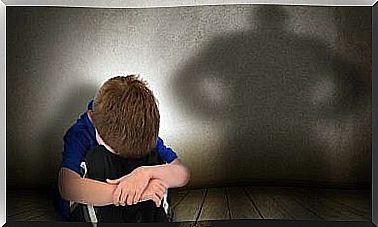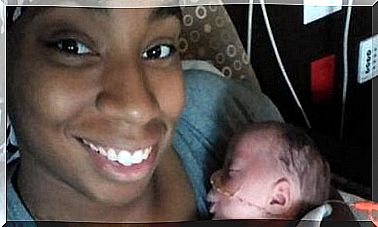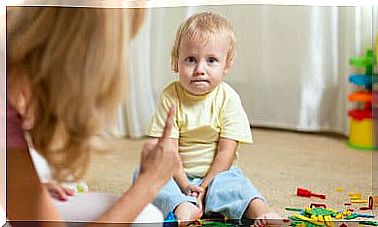Phonological Awareness In Children
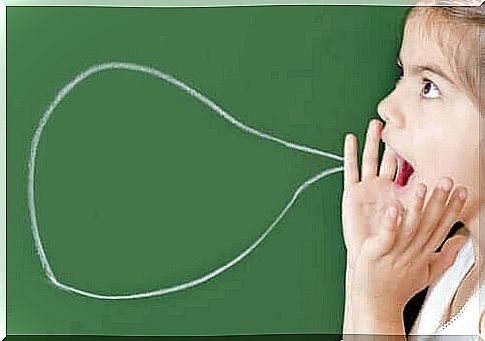
Have you ever wondered why we speak a certain way? Or how do children learn to make noises that gradually turn into words? This all goes back to phonological awareness in children and we develop this awareness at a young age without even realizing it.
Phonological awareness in children: what is it?
The concept
Phonological awareness is the basis of all oral communication. Because without noise we cannot verbalize words, let alone ideas.
Despite the fact that we already begin to develop this part of language when we are babies, it changes and continues to mature throughout our lives. Some examples could be perfecting diction or learning new languages along with their respective sounds.
Phonology in Infancy
Let’s start at the beginning: how do you talk to a baby? Without a doubt, you are not using the same tone or complexity as you are using in conversations with older children or adults.
Thanks to this phenomenon, known as baby talk, we learn in an intuitive way the sounds and words that make up our language.
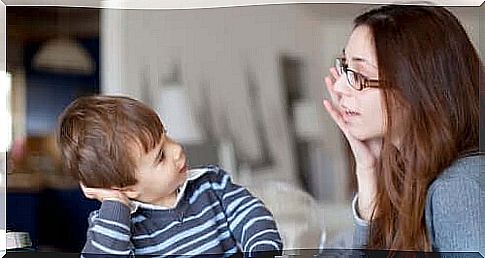
Imitation and repetition are essential at this stage. Pronunciation is a complex process that requires the action of many parts of the throat and mouth. That means it is not an easy task to master.
For example, if you say something as simple as “mom” to babies, they’ll keep trying to imitate you until they find the right position to pronounce the “M” And every time they learn a new sound, they keep repeating it.
The effects of phonological awareness in children
Phonological awareness is defined as the ability that gives us access to the structure of spoken language and to awareness of the phonological segments of the word. This skill is required for learning the written language. Therefore, learning to speak correctly in childhood is vital.
In schools, children first learn through oral exercises. Then the teachers teach them the appropriate sounds and letters.
Remember, mirror writing is normal at a young age. The complexity then increases as the children grow and learn to write the words and phrases they say.
Little by little, children learn that not everything they say or write is right, but that there are rules that dictate our language. This is where some teachers or parents realize that some children can have some degree of dyslexia. However, dyslexia is no longer an obstacle these days.
Maximize phonological awareness in children
Imitation and repetition
As mentioned earlier, this is the most common method babies and children use. But who says it isn’t useful for teenagers and adults too? The older we get, the longer we need to adapt to new phonological rules. However, this is by no means impossible.
We can perfect our pronunciation in our own language or in other languages at any age. We just need a good example to follow.
Try repeating words with similar sounds, such as tongue twisters, or mimicking someone else’s accent or pronunciation. The more children have this skill, the easier it is for them to adapt.
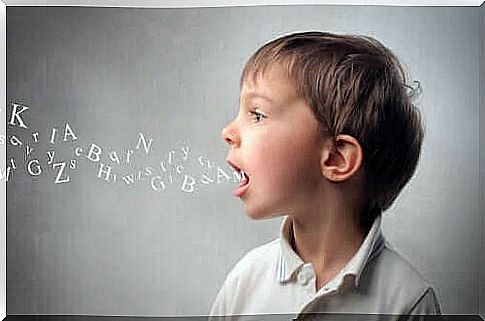
Promote phonological awareness in children through reading
We can help our children reach their full phonological potential through two types of reading. These are reading aloud or listening to others read and imitating them later. For example, if you are reading a story with multiple characters, you can read it with your children.
Any kind of reading is beneficial. And teaching children this habit is not only beneficial in writing and speaking. Because it also helps to expand their vocabulary, creativity and imagination. At the same time, it helps them learn to speak in public.
Diction experts
There are times when children have difficulty pronouncing certain sounds. In these cases, a speech therapist may be the best option to correct and practice the correct form of pronunciation.
In addition, a speech therapist and some teachers can suggest specific exercises that you can use to help your child with his or her pronunciation at home. As we know, nobody is perfect, but we all have the ability to improve.
